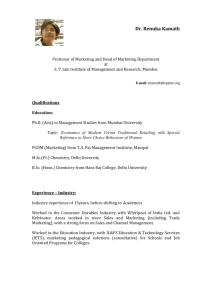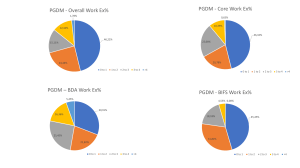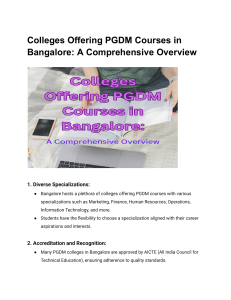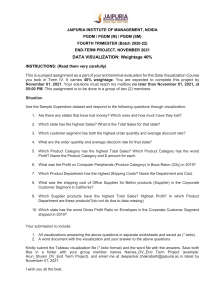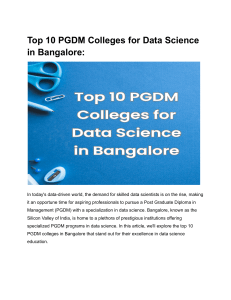A Beginner's Guide to PGDM Programs Everything You Need to Know
advertisement
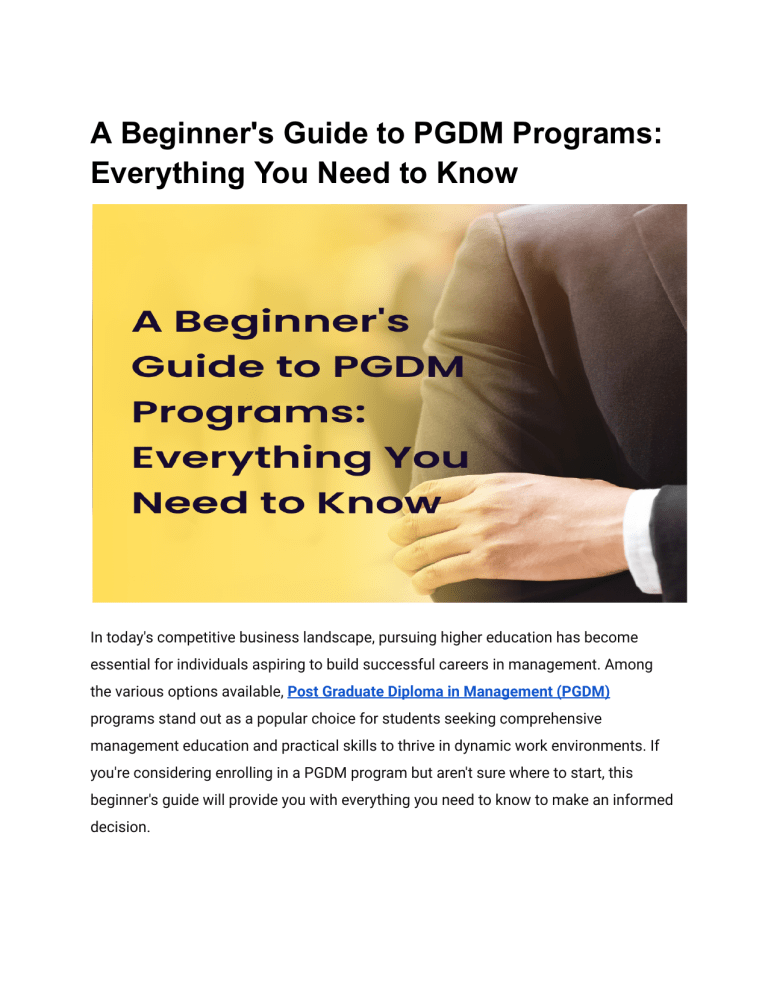
A Beginner's Guide to PGDM Programs: Everything You Need to Know In today's competitive business landscape, pursuing higher education has become essential for individuals aspiring to build successful careers in management. Among the various options available, Post Graduate Diploma in Management (PGDM) programs stand out as a popular choice for students seeking comprehensive management education and practical skills to thrive in dynamic work environments. If you're considering enrolling in a PGDM program but aren't sure where to start, this beginner's guide will provide you with everything you need to know to make an informed decision. Understanding PGDM: PGDM programs are postgraduate-level management courses designed to impart knowledge and skills in various areas of business management. Unlike traditional academic degrees like MBA, PGDM programs are offered by autonomous institutions approved by regulatory bodies like the All India Council for Technical Education (AICTE) and focus on industry-relevant curriculum, experiential learning, and professional development. Program Structure: PGDM programs typically span over a duration of two years and are divided into multiple semesters or trimesters. The curriculum is carefully crafted to cover core subjects such as Marketing Management, Finance, Human Resource Management, Operations Management, and Information Technology Management, along with elective courses and practical projects to enhance specialization in specific areas. Specializations: One of the key highlights of PGDM programs is the opportunity to specialize in various domains of management based on individual interests and career aspirations. Common specializations are➢ Marketing Management ➢ Finance Management ➢ Human Resource Management ➢ Operations Management ➢ Information Technology Management ➢ International Business Management ➢ Healthcare Management ➢ Entrepreneurship Management ➢ Retail Management and ➢ Rural and Agribusiness Management Admission Process: The admission process for PGDM programs typically involves fulfilling eligibility criteria such as holding a bachelor's degree from a recognized university, appearing for entrance exams like CAT, MAT, XAT, or GMAT, and participating in group discussions and personal interviews conducted by the respective institutions. Some institutions may also consider work experience and academic performance during the selection process. Benefits of PGDM: PGDM programs offer numerous benefits to students, including a practical and industry-oriented curriculum, exposure to real-world business challenges through internships and projects, opportunities for networking and collaboration with industry experts and professionals, and enhanced career prospects with the potential for higher salaries and leadership roles in reputed organizations. Career Opportunities: Graduates of PGDM programs are well-equipped to pursue diverse career paths in various industries such as Banking and Finance, Consulting, IT and Technology, Healthcare, Retail, Manufacturing, and Hospitality, among others. They can explore roles such as Management Trainee, Business Analyst, Marketing Executive, Financial Analyst, HR Manager, Operations Manager, IT Consultant, Entrepreneur, and more. Continuous Learning and Development: In addition to acquiring knowledge and skills during the program, PGDM graduates are encouraged to engage in lifelong learning and professional development to stay updated with industry trends, emerging technologies, and best practices. They can leverage resources such as workshops, seminars, certifications, and online courses to enhance their expertise and advance their careers. In conclusion, PGDM programs offer a comprehensive pathway for individuals seeking to pursue careers in management by providing a blend of theoretical knowledge, practical skills, and industry exposure. By understanding the program structure, specialization options, admission process, and career opportunities, aspiring students can make informed decisions and embark on a rewarding journey towards personal and professional growth in the dynamic world of business management.
